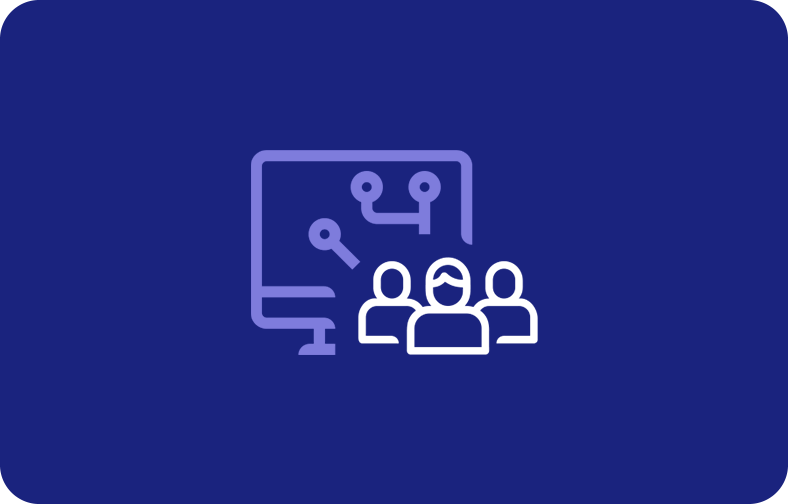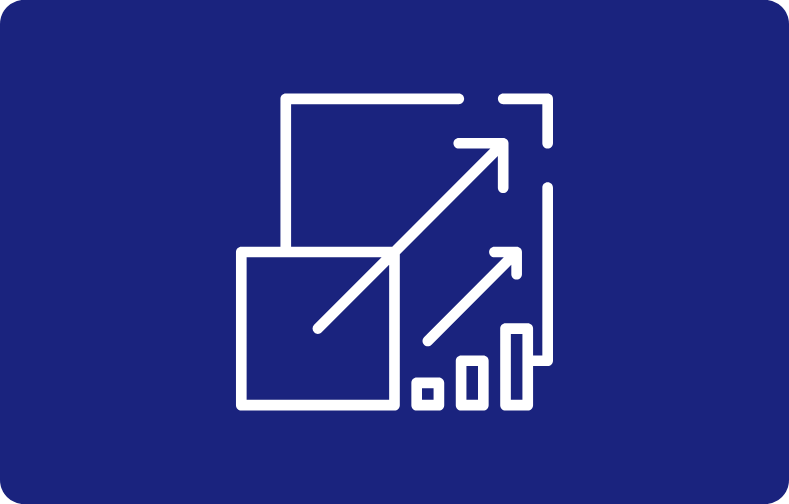MariaDB vs MySQL: Battle of the Databases
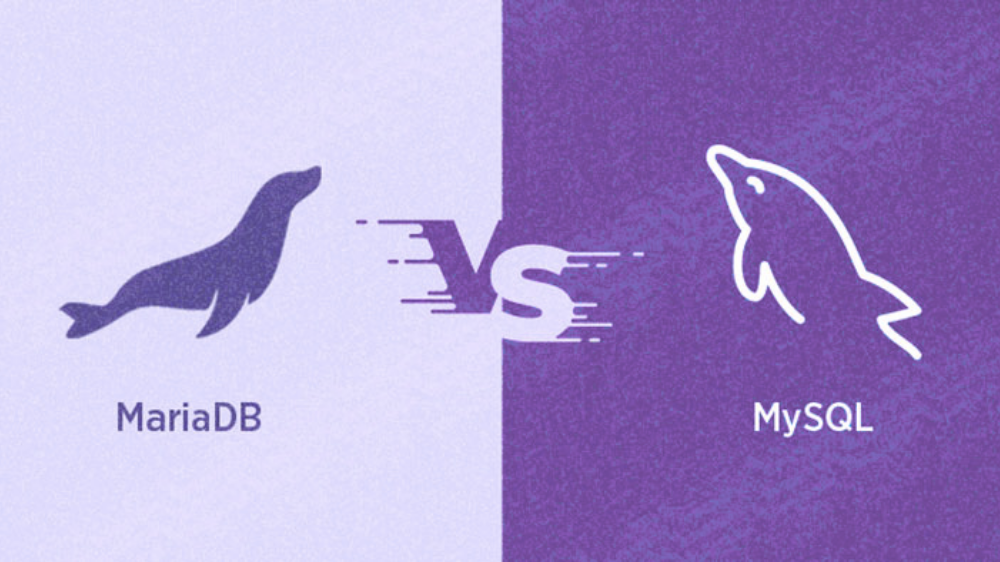
Choosing between MariaDB and MySQL? You're looking at two heavyweight contenders in the open-source database arena.
In both MariaDB and MySQL, functionality and performance are top priority. However, some major differences will become apparent as you start to use them. In this article, we will delve into their key differences and the pros and cons of each, so you can decide which one is right for your projects.
What is a Relational Database Management System?
A relational database management system, or RDBMS, is an essential tool in data administration. If you work with a significant volume of data and you only have a system for storing the data but no functionality to retrieve and manipulate it efficiently, then you need an RDBMS.
An RDBMS organizes data in a tabular form, giving you the ability to establish relationships between different data. Whether you're a developer, data analyst, or anyone who prefers their data structured, an RDBMS allows you to query, modify, and manipulate data easily.
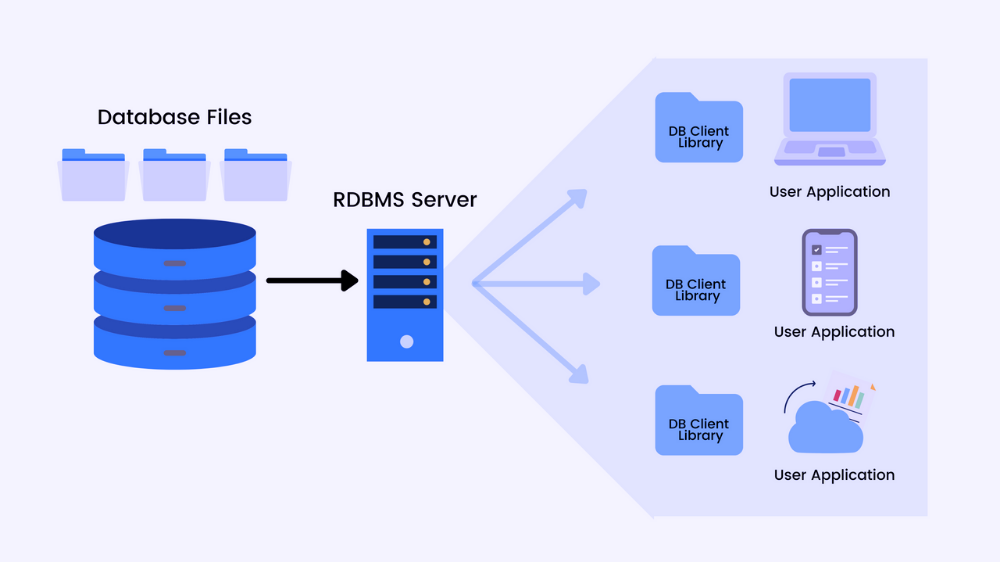
You have most likely heard of popular RDBMS like MySQL, PostgreSQL, and Oracle Database. Structured Query Language (SQL) is supported in these systems and is, in fact, the standard language used in talking to your database. Since an RDBMS has built-in data integrity, transaction management, and security abilities, it provides a good base for handling uniform and reliable data.
Relational databases are suitable for any task, from a small project to enterprise-level systems. They greatly improve the way you store and use your data to ensure the smooth running of operations.
What are MariaDB and MySQL?
The choice of database management system could be critical to the success of your project. The following comparison of MariaDB vs MySQL should help you understand their key differences and make informed decisions. Let's get into the details.
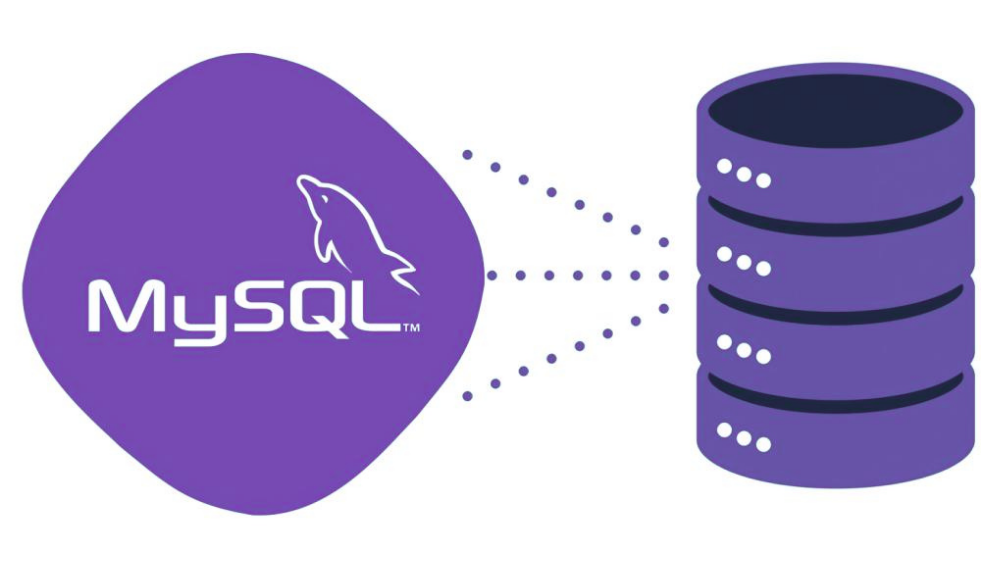
MySQL
MySQL is a field-tested relational Database Management System. Since its creation in 1995, it has become one of the standards for dealing with data. Its popularity has grown for online applications due to its reliability, easy usage, and active support community of open-source developers and enthusiasts.
Whether you run a small blog or a large e-commerce business, MySQL offers stability and performance. Numerous resources are available to assist you in mastering it, including substantial documentation and a diverse set of tools.
MySQL Enterprise Edition comes with additional advanced features, such as MySQL Enterprise Backup, MySQL Monitor, MySQL Security, and MySQL Audit. In comparison to the MySQL community edition, some features of the enterprise version provide enhanced backup of data, real-time performance monitoring with extensive security features, and in-depth auditing.
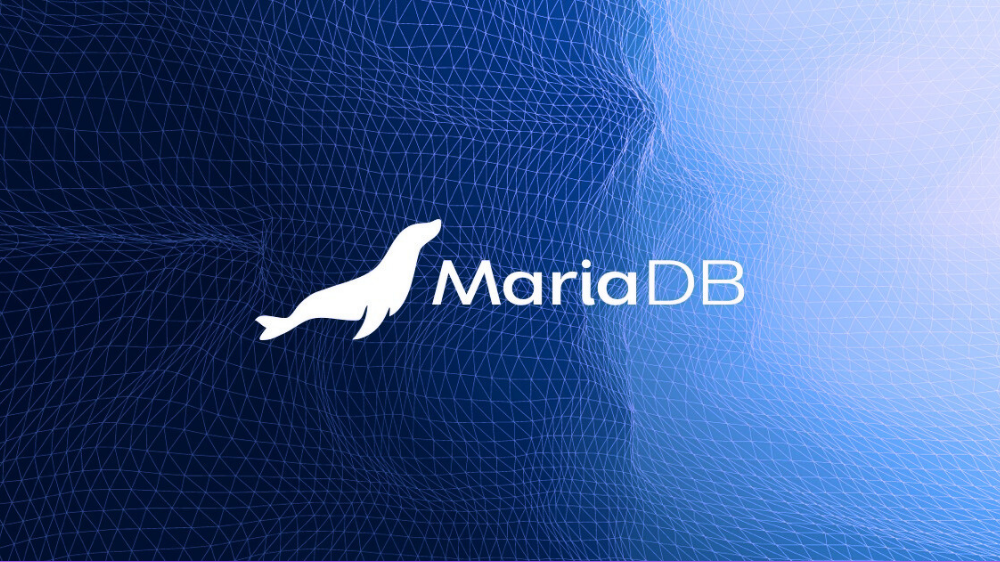
MariaDB
MariaDB is a drop-in replacement for MySQL—designed by the creators of MySQL. MariaDB becomes pretty compelling if you wish to avoid vendor lock-in or prefer a more open development model.
It maintains complete compatibility with MySQL, ensuring a seamless move for your applications. The advantages of MariaDB, however, do not end with compatibility; it also boasts increased performance, advanced security measures, and support for a broader range of storage engines.
Performance and Speed
MariaDB:
MariaDB is designed to run fast and efficiently. It has more storage engines than its counterpart, and it uses a better optimizer, which, in most instances, enables queries to run more quickly. MariaDB supports more concurrent connections without performance degradation.
MySQL:
Its processing power has seen considerable improvement over the last few versions; MySQL version 8.0 now exhibits quite good performance. However, it is generally slower than MariaDB in some important benchmarks, like complex queries and large-sized data sets.
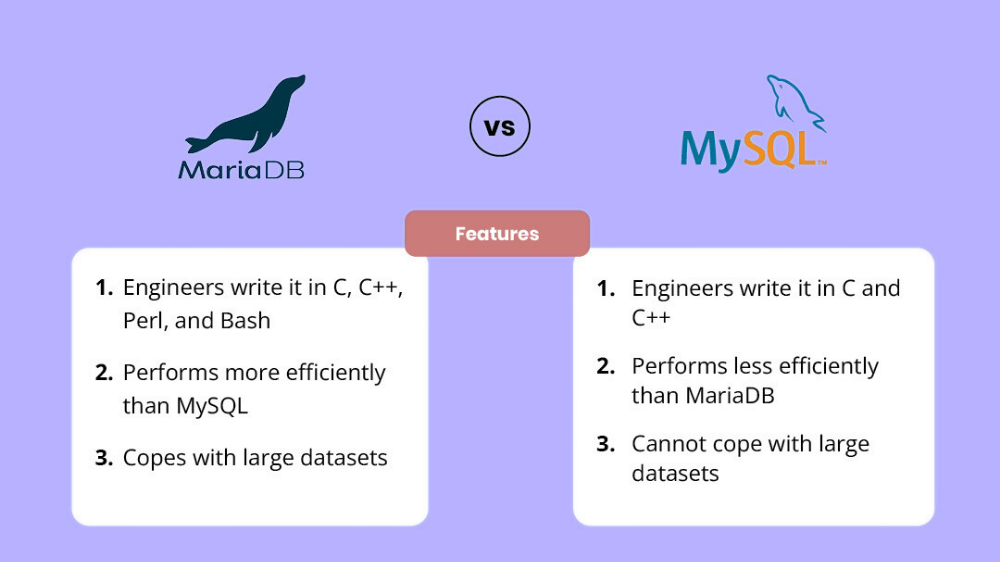
Multiple Storage Engines
MariaDB:
One of the most outstanding features of MariaDB is its support for multiple storage engines. This list includes engines like Aria, XtraDB, and ColumnStore, which tailor your database to your needs.
MySQL:
MySQL supports InnoDB as its default storage engine, although it's possible to use others such as MyISAM and Memory. While this is sufficient for many applications, there are fewer options available than MariaDB.
JSON Data Handling
MariaDB:
JSON, or JavaScript Object Notation, is a lightweight text format for storing and transporting data. MariaDB integrates excellently with the JSON format. MariaDB stores JSON reports and data as strings for easy manipulation and querying. This is especially useful for web applications that strongly rely on JSON functions. JSON data types include strings, numbers, booleans, arrays, objects, and null. It is a combination of these data types that creates flexible and hierarchical data structures that allow JSON to be an ideal medium for data interchanges between systems.
MySQL:
MySQL stores JSON data as binary objects. This can be more efficient for storage but it's less flexible for the data queries you can write.
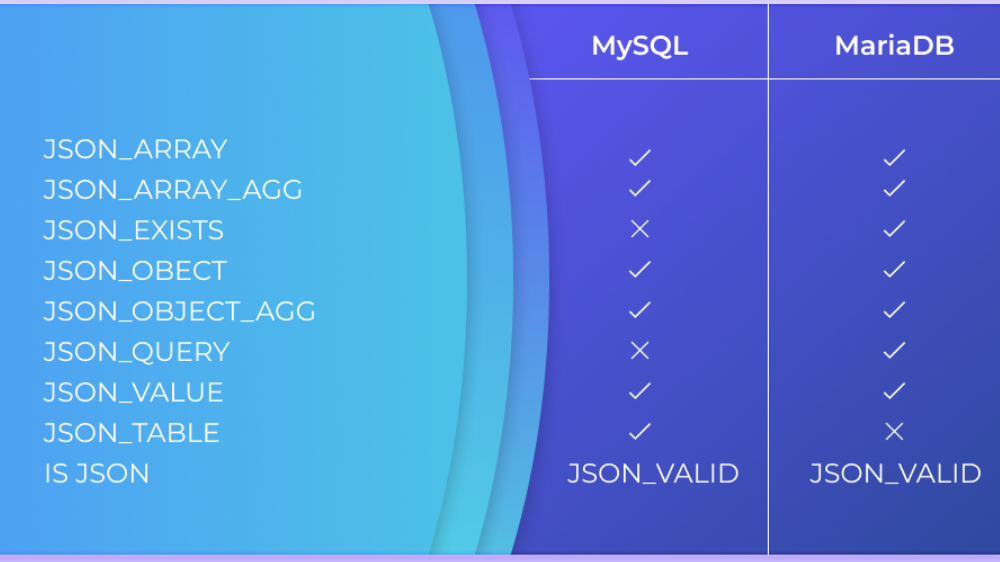
Security Features
MariaDB:
Security is one of MariaDB's best features. It offers different encryption possibilities, expanding to data-at-rest and binary log encryption. MariaDB also has improved validation password plugins.
MySQL:
MySQL includes the validate_password component to enhance password security. It also provides encryption for redo/undo logs but needs to encrypt temporary tablespace and binary logs more than MariaDB.
Compatibility with Oracle Database
MariaDB:
MariaDB is more compatible with Oracle databases. It supports Oracle-style sequences, data types, and PL/SQL procedures for easier migration from Oracle into MariaDB without substantial rewrites.
MySQL:
While MySQL supports some Oracle Compatibility functions, it is narrower in scope than MariaDB. This may be important if you need to migrate from or integrate with Oracle databases in the future.
Why Choose MariaDB over MySQL
When faced with a choice between MariaDB and MySQL, it's clear that more developers and businesses are going for the former. For the most point, it comes down to four metrics: speed, performance, flexibility, and security. MariaDB represents the fastest and best-performing RDBMS. MariaDB also has a far better optimizer and deals with parallel connections very powerfully, so that your applications run faster and smoother, which is essential if you're running large databases or complex queries.
One of the strongest advantages of MariaDB is its flexibility. MariaDB supports a wealth of storage engines with features that fit every set of needs. This adaptability can become a welcome solution for your particular requirements, especially if you are involved in several different kinds of projects.
Security is another area where MariaDB shines. With comprehensive data-at-rest encryption and robust password validation plugins, your data will be secure with MariaDB. Especially considering that nowadays, data breaches seem to occur almost as frequently as birthdays, this feature has become quite appealing.
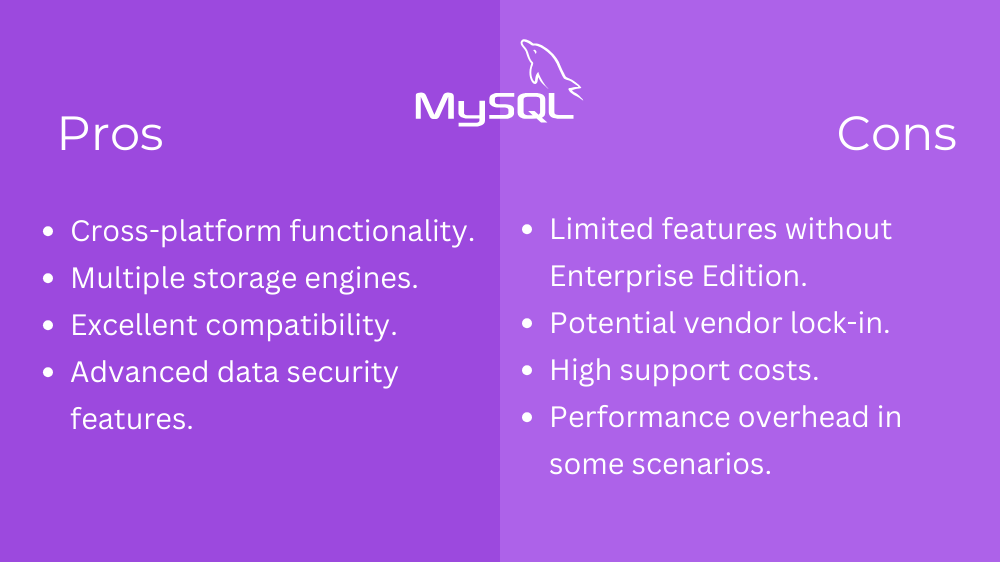
Improved Oracle database support makes MariaDB more attractive to those looking for an easier pathway from an Oracle environment. Native support for Oracle style sequence, data types, and PL/SQL procedures reduces modification time, giving you more time to spend on your core tasks.
Choosing between MariaDB and MySQL should be at least partly based on your personal preferences. Going with MariaDB shows a preference for performance, flexibility, security, and freedom. It is essential to have a database solution that can evolve with your needs while keeping you in control.
Pros and Cons of MariaDB
Here is a bulleted list of the features of MariaDB, clearly laid out so you can decide for yourself if this is the right database system for you.
Pros:
-
High Performance:
MariaDB's top-notch performance and speed are supported by an advanced optimizer and know-how to handle concurrent connections. -
Flexibility in Storage Engines:
MariaDB supports multiple storage engines, hence letting one customize the database for specific needs. However, MySQL only supports InnoDB as its default storage engine. -
Improved Security:
Be confident that your data is protected with enhanced security features like data-at-rest encryption and robust password validation plugins. -
Open-Source Assurance:
MariaDB's fully open-source model allows you to receive frequent updates and innovations from a community-driven development process. -
Oracle Compatibility:
If you come from an Oracle corporation, MariaDB supports Oracle-style sequences, data types, and PL/SQL procedures, which can make your transition easier. -
Active Community Support:
Tap into a vibrant network of developers offering resources and staying on top of regular updates.
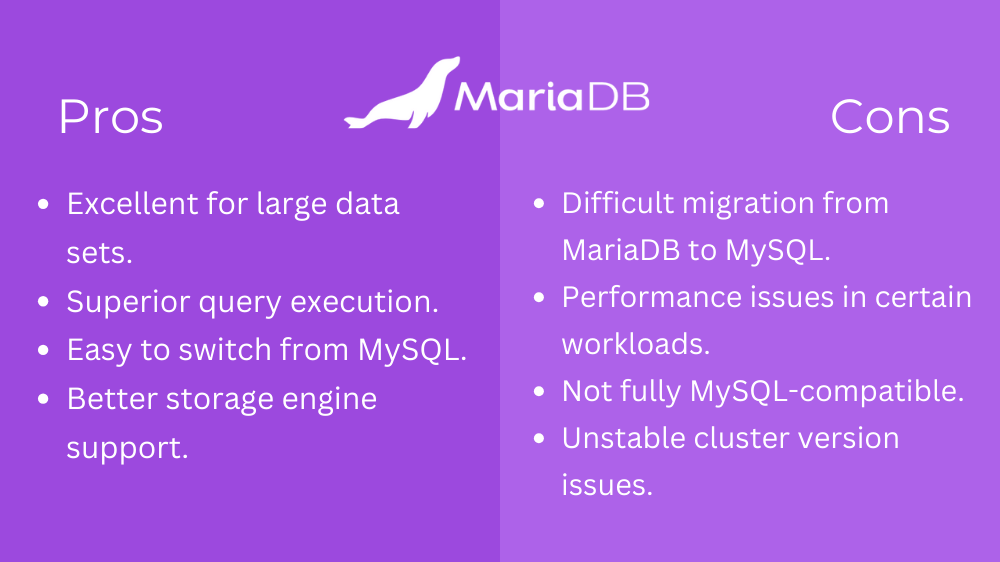
Cons
-
Less Commercial Support:
While the community behind open source is very robust, there may be fewer commercial support options than with MySQL. -
Learning Curve:
For someone with a MySQL background, many of MariaDB's features and tools require some additional learning and adjustment. -
Incompatibility:
MariaDB is fully compatible with MySQL, but some of the advanced functionality features may work differently or be disabled. -
Smaller Ecosystem:
The ecosystem of tools and plugins specifically for MariaDB may be smaller in comparison with those available with MySQL.
By pitting these pros against the cons, you can decide whether MariaDB fits your needs and priorities. If performance, flexibility, and opening source are among your core considerations, MariaDB is a compelling choice.
Switching from MySQL to MariaDB
Migrating your data from MySQL database to MariaDB is easier than you may think. Because MariaDB was forked from MySQL, it maintained compatibility with the MySQL databases and provides identical SQL commands and data structures.
The migration process usually involves uninstalling MySQL, installing MariaDB, and then running MariaDB with your existing, unmodified MySQL data files. MariaDB's server process can read and interpret MySQL's configuration files directly, so you do not need to start from scratch. By maintaining this level of configuration compatibility, MariaDB significantly reduces the technical overhead of migrating from MySQL.
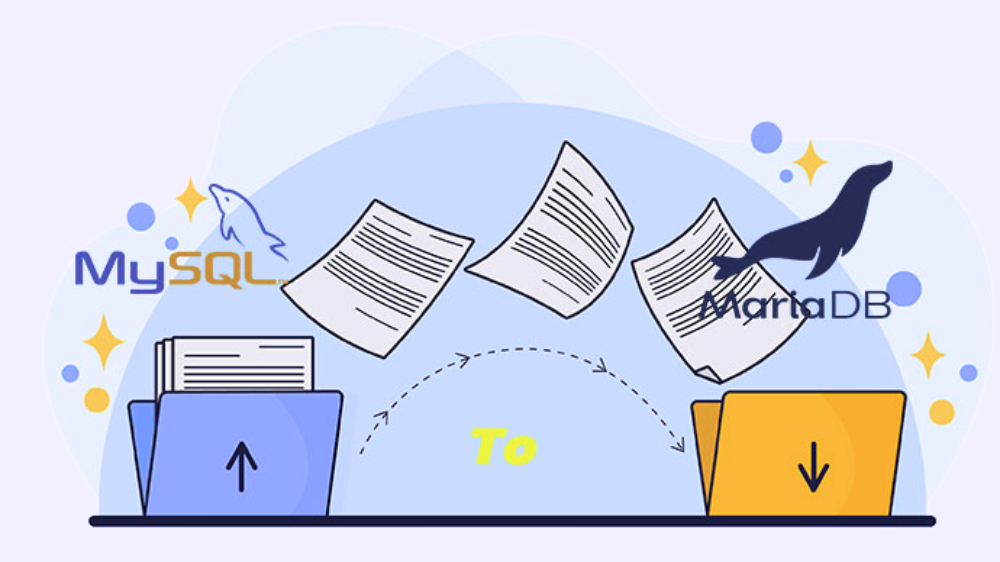
With MariaDB, you will get enhanced functionality, improved performance, and the reliability of an utterly open-source database compatible without any lock-in from vendors. If you've become frustrated by MySQL's limitations or are concerned about potential product restrictions, then moving to MariaDB can be a seamless shift to a smoother ride. Designed with practical and flexible management in mind, MariaDB boasts a strongly connected community driving ongoing innovations in database management. This ecosystem ensures you're not just switching databases, but joining a forward-thinking movement in data management.
And in case you just can't decide which would be the best database for your project, or if you need both in order to operate, you'll be pleased to know that both MySQL and MariaDB can coexist on the same server, using different ports and directories for data. Proper configuration is needed to avoid conflicts between them so that each database system can work on its own without any disturbance from another.
VPSServer and MariaDB
VPSServer offers an easier way of managing MariaDB databases, building on its intuitive dashboard and rich functionality. With the robust and reliable hosting solutions from VPSServer, you can be sure that your MariaDB databases will function fluently, with optional automatic backups, monitoring tools, easy scaling, and easy installation, configuration, and management.
In addition to the community support, your migration to MariaDB will bring you enriched features with the flexibility of open-source software. Our 24/7 technical support and reliability protection will help you eliminate hurdles that might come up while handling your databases.








